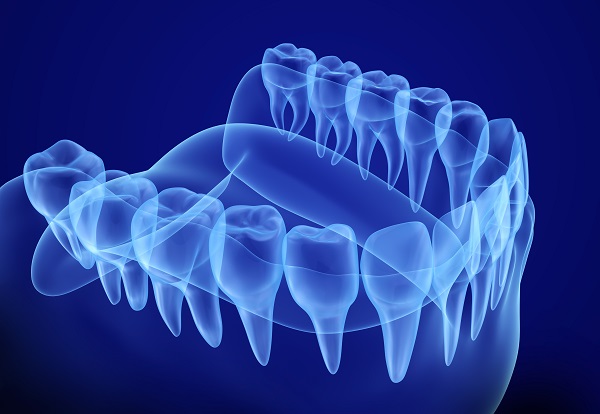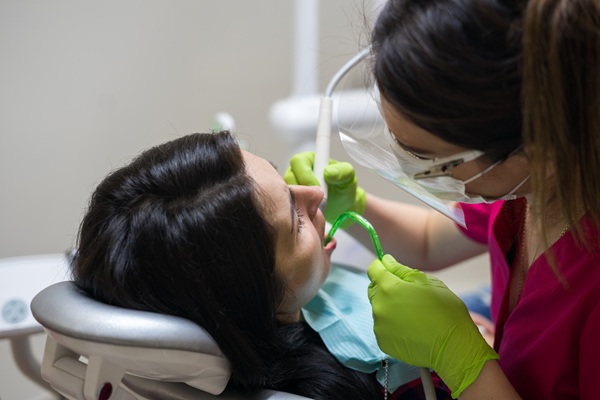A Look at Implant Supported Dentures: Roots, Jawbone and Dentures

Implant supported dentures are supported by dental implants that are placed into the jawbone. This can prevent bone loss from occurring in the jaw, along with various other oral health, cosmetic and functional benefits. In this review, we take a look at how implant supported dentures impact the jawbone and serve as a root for the replacement teeth (dentures).
How implant supported dentures work
Most patients have several options available when they seek teeth replacement. It is helpful to understand the benefits of each one before making your final decision. Implant supported dentures are one of the most commonly recommended treatment options and have unique benefits that traditional dentures do not.
The importance of replacing missing teeth
A tooth is supported by the gums and underlying jawbone. When issues arise with these supporting structures of teeth, tooth loss becomes more likely. After tooth loss occurs, the jawbone no longer serves as important of a role, and subsequently, bone loss can result. This can lead to oral health, functional and cosmetic concerns that can be addressed by implant supported dentures treatment.
How implant supported dentures preserve bone density
One of the main drawbacks of traditional dentures and fixed bridges is that they do not preserve bone density, meaning that bone loss can occur in the jaw despite the restoration. With dental implants, however, bone loss is not likely to occur. This is because the dental implant fuses together with the underlying jaw bone, which means that the jawbone will continue to support the root of the tooth the same way that it did with a natural tooth, giving it purpose. Bone density is important for maintaining the health of teeth, as well as preventing the jaw looking sunk in or weak.
The process for implant supported dentures
The process is different for every patient, although there are certain steps that are common. Of course, the process begins with a consultation, during which the dentist can discuss treatment goals, conduct an oral examination and make a treatment recommendation.
The patient may need preparation for the placement of the implants, particularly if they have lost bone inside of the jaw following tooth loss or have periodontal disease. The patient will need time to recover after implants placement, which may take several months. Afterward, the abutment and dentures are attached to the implants, completing the restoration.
Implant supported dentures care tips
Caring for implant supported dentures is not much different than caring for natural teeth. Brushing, flossing and using mouthwash as directed by the dentist is important, along with limiting foods that may increase the risk of gum disease and other oral health complications. Frequent visits with the dentist for a check-up can also help patients get the most out of their implant supported dentures.
Consult with our dental team today
Get in touch with us today by phone or email to learn more about how implant supported dentures work and to determine if treatment is right for you. It is our goal to help all our patients achieve the smile of their dreams by replacing missing teeth.
Request an appointment here: https://whiteflintfamilydental.com or call White Flint Family Dental at (301) 273-1085 for an appointment in our Rockville office.
Check out what others are saying about our services on Yelp: Read our Yelp reviews.
Recent Posts
An experienced cosmetic dentist can provide dental veneers to help you regain your smile. The custom-fit shells can improve your looks. Each one can even provide support for your teeth. Here are the questions to ask your cosmetic dentist to find out if getting veneers will be a good decision for you.These thin shells go…
A routine dental cleaning plays a critical role in preventing cavities, gum disease, and other oral health concerns. In many cases, patients benefit from two dental cleaning appointments per year. However, certain individuals may require additional cleanings to maintain optimal oral health. A dentist may recommend more frequent visits based on risk factors, existing conditions,…
When gums start to recede and pull away from the teeth, it can alter the appearance of the smile and leave the teeth vulnerable to decay. A cosmetic dentist may fix receding gums, restoring the smile's appearance. While the focus will be on aesthetics, some cosmetic dental procedures may also protect your oral health.Gum recession…
Being unhappy with your smile can impact how you view yourself and socialize. Cosmetic dentists understand this, so they are committed to providing patients with the smile of their dreams. They do this through smile makeovers. Smile makeovers are custom for each patient and encompass various services. Here are the five most common.Dental bonding is…


